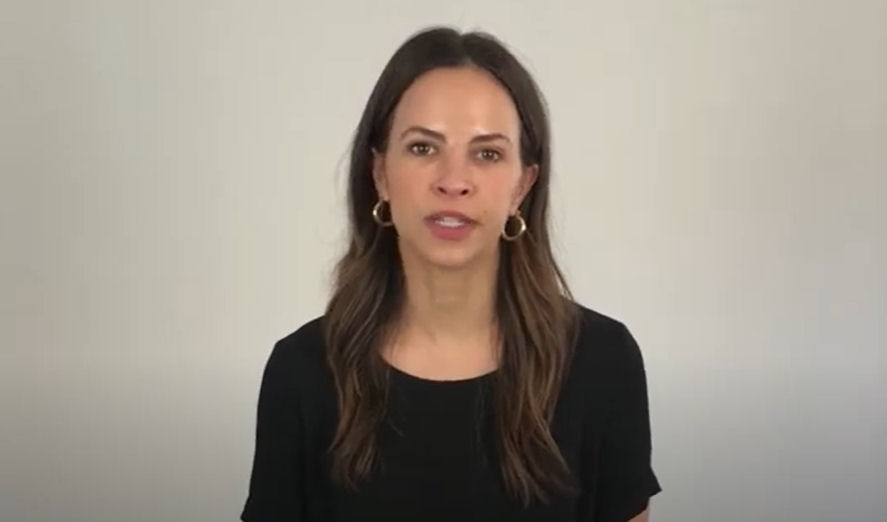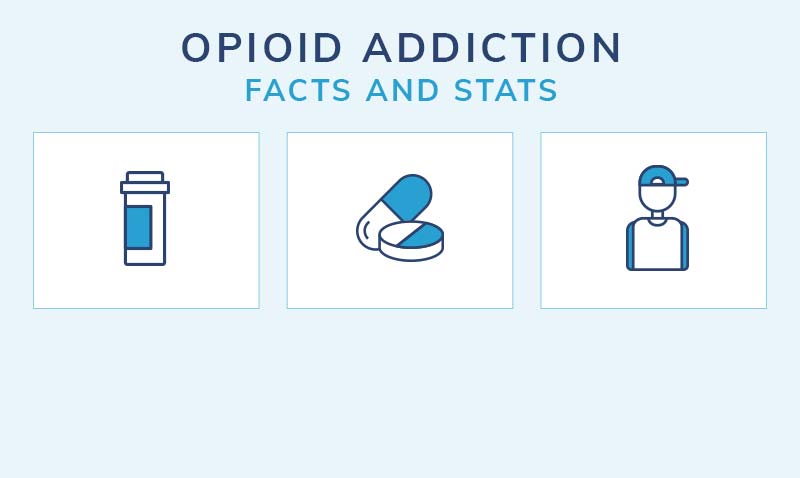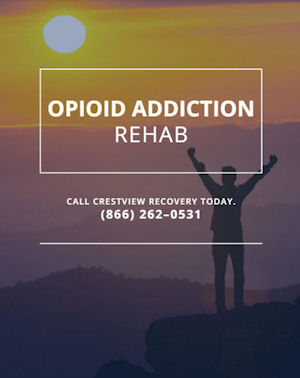
Healing Begins Here
WHAT IS AN OPIOID ADDICTION?
If you’re concerned that your loved one might have an opioids addiction, look for the following signs:
- Constant euphoria
- Increased anxiety
- Unusual sleeping patterns
- Decreased motivation
- “Nodding off”
- Slowed breathing
- Poor concentration

Overdose is also a very real danger of an opioids addiction. If your loved one has bluish lips, shallow breathing or isn’t conscious after taking opioids, you should immediately call emergency medical personnel.

Our treatment programs accommodate client needs across the board such as:
HOW ADDICTION AFFECTS THE BRAIN
Addiction is a disease. It occurs when the brain becomes reliant upon an outside source for vital chemical processes. Dependent or addicted individuals experience irresistible cravings. These lead individuals to make compulsive and often dangerous decision to continue using the drug. Just like healing from any other bodily disease, an individual experiencing opioid use disorder or addiction needs professional treatment and sometimes medication. Because opioids target powerful reward or pleasure centers of the brain, they are highly addictive.
When an individual takes opioids, the drug binds and activates neurotransmitters in the brain. These handle the creation and release of such pleasure-giving chemicals like dopamine. The prescription purpose of opioids is to block pain signals sent from the brain. Thus, they release large quantities of dopamine. The longer an individual takes opioids, the more the brain becomes accustomed to the drug being responsible for this chemical process. Therefore, when an individual stops taking the opioids they can experience withdrawal as the brain attempts to make up for the sudden loss. Some common symptoms of opioid withdrawal include:
- Muscle and bone pain
- Difficulty sleeping or other sleep issues
- Diarrhea and vomiting
- Uncontrollable leg movements
This is how, unless managed attentively, opioids trigger addiction. When individuals taking prescription opioids diverge from the directions given by their doctor, addiction can develop. For instance, when individuals crush pills into a powder to snort or dissolve in water for quicker effect, they are abusing the drug. By doing so, they increase the likelihood that their brain will be unable to cope once the drug is no longer used.
HOW REHAB TREATS OPIOIDS ADDICTION
After the withdrawal process, patients continue on to a rehab program. This program can be an extended care treatment program, a partial hospitalization treatment program, an intensive outpatient treatment program or an outpatient treatment program. Each level of care is designed for patients with different levels of addictions. Some even start out with partial hospitalization and step down as they progress through the recovery process.
Partial hospitalization (PHP) sees patients come to the rehab facility or designated medical center to receive treatment. Often this includes therapy programs such as:
- Individual Therapy
- Group Therapy
- Family Therapy
- Trauma Therapy
Once the structured day is completed, patients return to their home or approved living facility. Similarly, our intensive outpatient program (IOP) bridges the gap between residential treatment and rehab aftercare. In IOP, patients are able to work and attend school (typically during the day) and then receive a concentrated treatment program in the evening. This treatment is still of the same quality as residential or PHP care. All of these programs as well as others Crestview Recovery provides are designed to serve the specific needs of patients. We do this each patient gets the optimal care and is set up to succeed in their recovery. This means transitioning back to everyday life and reducing the possibility of relapse.
In rehab, professional counselors provide therapy options and personalized treatment programs to fit each individual. This may include cognitive behavioral therapy, dual diagnosis therapy, experiential treatments or a combination.
Over 5,000 people a day begin misusing prescription opioids on average.Opioid addiction doesn’t have to claim your life or the life of a loved one. Calling Crestview Recovery today can get you on the path to recovery.






















